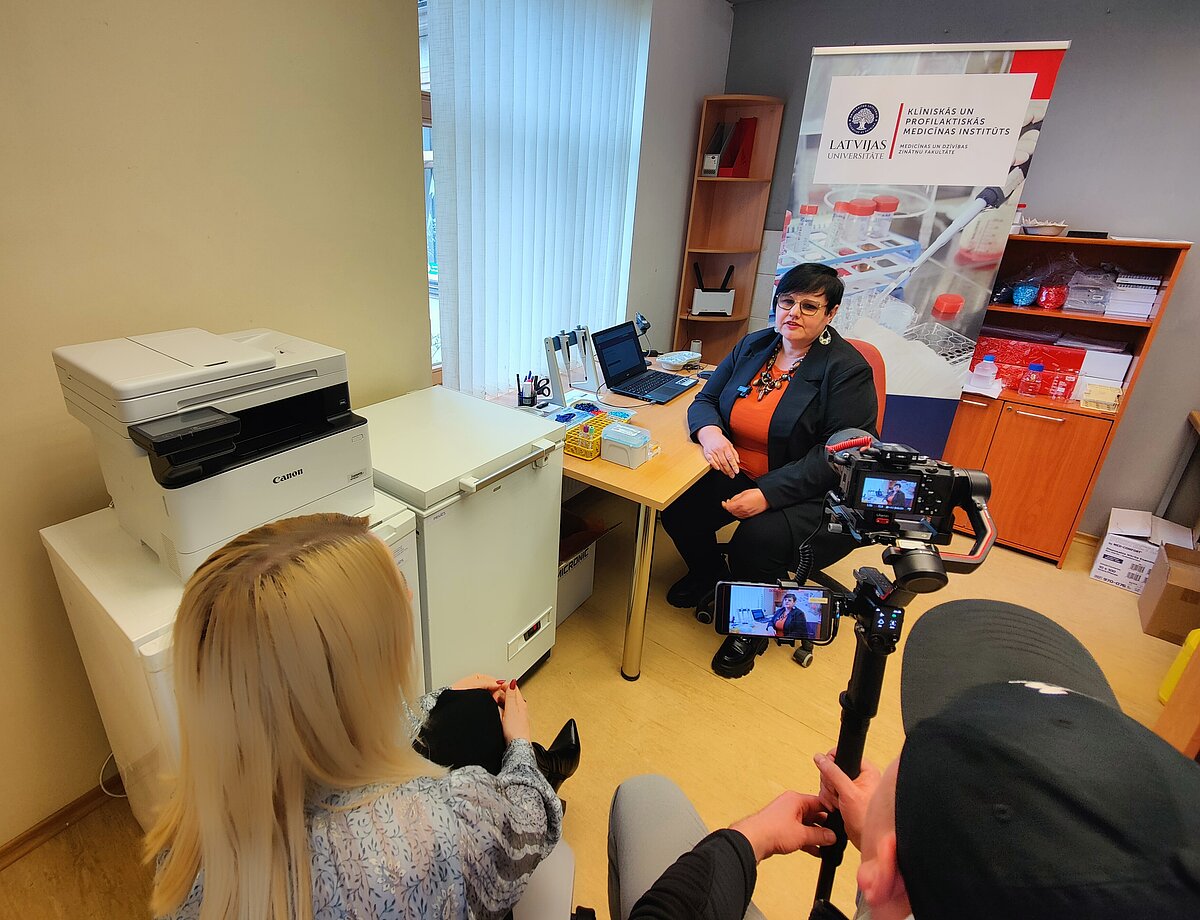
To discover and prove the effectiveness of new screening methods for the early detection and prevention of gastric and intestinal cancers in high cancer prevalence regions, the GISTAR study (Gastric cancer prevention study by predicting atrophic gastritis) was launched in Latvia in October 2013.
By the end of the inclusion period in 2023, 11,223 residents of Latvia had participated. This unique study in Europe, which takes place only in Latvia and is one of the longest and most comprehensive in Latvian medicine, is conducted by the Institute of Clinical and Preventive Medicine of the University of Latvia (LU KPMI) under the leadership of Professor and gastroenterologist Mārčs Leja.
GISTAR study participants who were found to have the bacteria H. pylori in their stomach received a treatment course for its eradication. Currently, a repeat survey of participants is being conducted, which will continue until February 2026. Invitations for repeat visits have been completed in Cēsis (332 participants), Alūksne (331 participants), Ludza (546 participants), Saldus (548 participants), Rēzekne (1111 participants), and Jēkabpils (534 participants). In a few months, participant surveys will begin in Tukums and Kuldīga.
Data obtained from the GISTAR study are also used in other studies:
• TOGAS (Towards Gastric Screening implementation in the European Union).
• EUROHELICAN (Accelerating gastric cancer reduction in Europe through Helicobacter pylori eradication).
• EUCanScreen (European Joint Action on Cancer Screening).
Before the center opened in Dobele, training took place for its staff, during which new employees were introduced to the study's website, data usage and security regulations, the GISTAR data management system, the study protocol, and the participant inclusion process, and practiced standard procedures.

The project "Towards Gastric Cancer Screening Implementation in the European Union" (TOGAS) has received funding from the European Union program EU4Health under grant agreement No. 101101252.
The views and opinions expressed here reflect only the author's perspective and do not represent the position of the European Union or the European Health and Digital Executive Agency (HaDEA). The European Union and the funding agency bear no responsibility for them.
 CONFERENCE
CONFERENCE